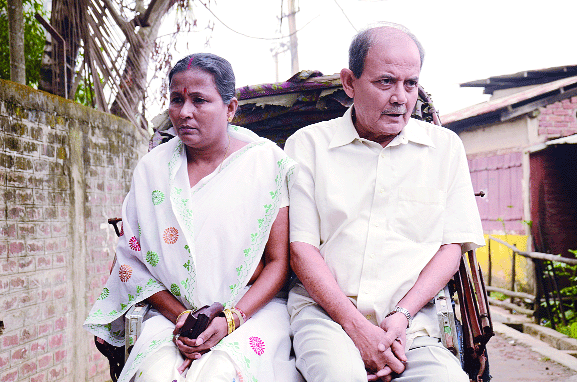National Award-winning filmmaker Jahnu Barua hopes that the nationwide release of his film, Baandhon, will open doors for Assamese films going mainstream. He chats with Divya Kaushik on why some filmmakers are forced to add commercial elements in their movies
His recent film Baandhon became the first Assamese film to release outside the state. It was recently screened at PVR Anupam Saket and the noted director Jahnu Barua is elated by the response. The fact that an Assamese film got a nationwide release is making him swell with pride. Baandhon or the Wave of Silence depicts the story of the elderly couple who were living content, happy life until their grandson went missing in the attacks of 26/11 attacks. “Whenever a terror attack happens in our country, it is ultimately common man who suffers. This remains to be the essence of the story and is depicted through an elderly couple in the film,” explained the National Award-winning director and added that he decided to make the film soon after 26/11 attacks. “I was in Goa attending a film festival when the news of terror attacks jolted all of us. For the next two days most of us at the film festival were following the updates religiously and I thought that there would be many films made on the same. But as part of the fraternity I felt ashamed that no film was announced even after two years of the attack. I thought Indian cinema should have a film that depicts the tragedy that common people face in India. My wife suggested to come up with a simple story to can take forward the message and create an impact if it is well-made,” added Barua.
Emotions play an important role in Barua’s films. The filmmaker says that “I don’t limit myself when it comes to emotions. You cannot define a situation on screen until you know how to present them with emotions. As a filmmaker I have never shied away from emotions. If there is love or hatred I have believed in showcasing the intensity of that love or hatred on screen. This portrayal of emotions makes one movie different from the other. In a film like Baandhon there are lots of emotions one feels while watching the film. The audience is able to understand the pain, love and joy of the elderly couple through the emotions that are at some places depicted without even saying a word. The other important thing is relationship. They are God’s gift to human society and they make us laugh and cry. Relationships in the modern world are changing but the beauty of relationships is not lost.”
The director believes in being optimist and that is well reflected through his films.
When it comes to Assamese films being accepted as the mainstream cinema, the director remains hopeful. He said, “Baandhon has set an example and I think as Indian cinema will get mature the situation will improve. In Indian cinema has been on a very wrong direction- where the films are classified as language or regional films and the moment you tag the film as regional, it is looked down upon. We can’t blame the audience as the films do not reach them. It is encouraging to get a good response for Baandhon and shows audience is getting matured when it comes to content and is open to different cinema. Also, in our country the problem is that without even watching a film it is discarded. Another thing is that you can never get an Oriya or a Gujarati to watch a Malayali film. We need to create a faith in the storytelling tradition again. NFDC and National Award jury have been doing a lot in spreading the awareness by honouring films on the basis of content and not the language. Doordarshan used to have a slot wherein they showcased a language film but it discontinued. People still remember and miss that era that means there is demand.”
The director added that for any film to be good, it should come out from a filmmaker’s heart. “The problem is that the market mechanism is such that there are many directors who are forced to add commercial elements like item songs against their wish. So there are hardly any pure, good films today. I have seen many good filmmakers in the industry doing work which they don’t believe in because people who are governing the market want that,” he shared.
Assamese film market though is small, but Barua says that it is opening up and there are financers open to invest money.
“But even that money is not sufficient to get a good big-budget film. We have to depend on simple presentation due to the lack of funds,” said the director whose next film Ajeyo will be releasing by October. It is based on Arun Sharma’s novel.
























